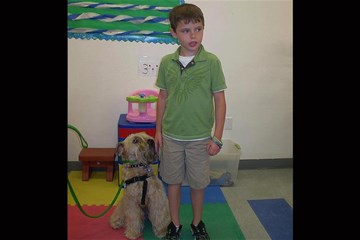Your contribution to the United Methodist Committee on Relief (UMCOR) is helping disaster survivors across the nation recover from events that never made the headlines.
How does UMCOR stretch your "disaster dollar" to quietly bring hope to countless people and their families? And what is a "low-attention disaster?" It often means that there is little financial assistance and volunteer labor for people most in need, said Catherine Earl, a disaster response program manager for UMCOR.
"It is possible, however, to turn a low-attention disaster into a highly meaningful recovery for survivors through the dedicated efforts of the church in partnership with UMCOR," Earl said.
Across the nation, conference disaster responders help stretch recovery dollars by partnering with other organizations. In Florida, responders are working in a small community in North Escambia, which was hit by tornadoes in February. Through a National Voluntary Organizations Active in Disaster (VOAD) connection, the Florida Recovery Team is working with the HOPE Animal-Assisted Crisis Response (ACCR), an organization that assists disaster survivors with emotional care through the use of therapy dogs.
Service dogs and their handlers met with children at the Camp Fire Century Youth Learning Center and then had personal visits with two other children. "Knowing that some of the children in the community continue to struggle every time a storm comes to town, I believe this is a really fun way to help them open up and begin discussing their feelings and fears," said Lynn Dobry, executive coordinator for the Florida Recovery Team (Alabama-West Florida Conference). Partnerships such as this help the United Methodist Church to provide holistic care, extend our reach, and make best use of donor dollars.
Volunteers also help UMCOR reach more for less money. "Every dollar can be stretched because of the help of volunteers who are willing to go where there is little or no media attention," said Earl.
In McGehee, Arkansas, long-term recovery is just beginning after March storms damaged hundreds of homes, and the area needs repair teams. "We have 233 on our list requesting assistance," reported Byron and Janice Mann, disaster response coordinators for the Arkansas Conference — yet very few people across the nation are even aware.
The same situation happens in an urban setting. In Detroit, at least 25 families — some of them waiting for two years — need experienced teams of volunteers to hang drywall, put down floor tile, or muck out basements.
Recovery in these communities depends on volunteers showing up.
Meanwhile, how do disaster responders focus when working in a community that's receiving seemingly little attention? They focus on the people, said Forrest White, a disaster recovery manager in the Virginia Conference.
"We try to focus on the survivors, and try to serve them as God calls us to do," he said.
Susan Kim, journalist and regular contributor to www.umcor.org
One of six churchwide Special Sundays with offerings of The United Methodist Church, UMCOR Sunday calls United Methodists to share the goodness of life with those who hurt. Your gifts to UMCOR Sunday lay the foundation for the United Methodist Committee on Relief (UMCOR) to share God's love with communities everywhere. The special offering underwrites UMCOR's "costs of doing business." This helps UMCOR to keep the promise that 100 percent of any gift to a specific UMCOR project will go toward that project, not administrative costs.
When you give generously on UMCOR Sunday, you make a difference in the lives of people who hurt. Give now.





